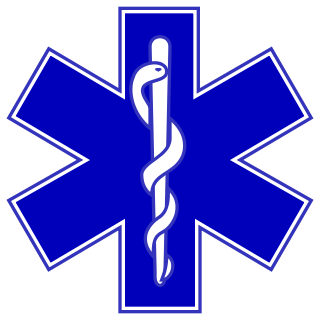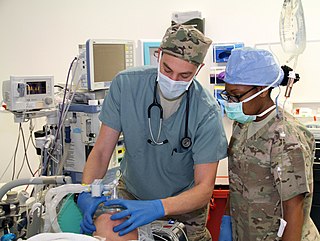
Medicine is the science and practice of establishing the diagnosis, prognosis, treatment, and prevention of disease. Medicine encompasses a variety of health care practices evolved to maintain and restore health by the prevention and treatment of illness. Contemporary medicine applies biomedical sciences, biomedical research, genetics, and medical technology to diagnose, treat, and prevent injury and disease, typically through pharmaceuticals or surgery, but also through therapies as diverse as psychotherapy, external splints and traction, medical devices, biologics, and ionizing radiation, amongst others.
Medical psychology is the application of psychological principles to the practice of medicine, and is clearly comprehensive rather than primarily drug-oriented, for both physical and mental disorders. The specialty of Medical Psychology and the National Alliance of Professional Psychology Providers (www.nappp.org) has been instrumental in advocacy and professional publications in increasing the awareness of Governmental Agencies, Scientific Societies, and the World Health Associations about the limited effect of "medication only approaches" to mental disorders and many related chronic physical disorders. A Medical Psychologist is a specialist who holds board certification in Medical Psychology from the American Board of Medical Psychology (www.amphome.org) and approved by the national psychology practitioner association in psychology(www.nappp.org). A specialist in Medical Psychology holds a doctoral degree in one of the clinical specialties in psychology, has done post doctoral graduate or approved didactic training in biomedical and pharmaceutical sciences and physical disease with behavioral and lifestyle components, and has completed a supervised residency providing advanced clinical diagnoses, prescribing or collaborating on medication and psychological treatment interventions in a comprehensive treatment plan, and they have passed one of the acceptable national written examinations, and supplied reviewed work product, and passed an Oral Examination. Medical psychologists are prepared to provide leadership and active roles in primary care and specialty healthcare facilities or consultation services essential for these facilities. A psychopharmacologist is very different from a Medical Psychologist, though one state uses confusing language in its laws.
A psychiatrist is a physician who specializes in psychiatry, the branch of medicine devoted to the diagnosis, prevention, study, and treatment of mental disorders. Psychiatrists are medical doctors, unlike psychologists, and must evaluate patients to determine whether their symptoms are the result of a physical illness, a combination of physical and mental ailments, or strictly psychiatric. A psychiatrist usually works as the clinical leader of the multi-disciplinary team, which may comprise psychologists, social workers, occupational therapists, and nursing staff. Psychiatrists have broad training in a bio-psycho-social approach to assessment and management of mental illness.

Risk management is the identification, evaluation, and prioritization of risks followed by coordinated and economical application of resources to minimize, monitor, and control the probability or impact of unfortunate events or to maximize the realization of opportunities.
Obstetrics and gynecology or obstetrics and gynecology is the medical specialty that encompasses the two subspecialties of obstetrics and gynecology. It is commonly abbreviated as OB-GYN or OB/GYN in US English, and as obs and gynae or O&G in British English.

Emergency medical technician (EMT) and ambulance technician are terms used in some countries to denote a health care provider of emergency medical services. EMTs are clinicians, trained to respond quickly to emergency situations regarding medical issues, traumatic injuries and accident scenes.
Transfusion medicine is the branch of medicine that encompasses all aspects of the transfusion of blood and blood components including aspects related to hemovigilance. It includes issues of blood donation, immunohematology and other laboratory testing for transfusion-transmitted diseases, management and monitoring of clinical transfusion practices, patient blood management, therapeutic apheresis, stem cell collections, cellular therapy, and coagulation. Laboratory management and understanding of state and federal regulations related to blood products are also a large part of the field.

Anesthesiology, anaesthesiology, anaesthesia or anaesthetics is the medical speciality concerned with the total perioperative care of patients before, during and after surgery. It encompasses anesthesia, intensive care medicine, critical emergency medicine, and pain medicine. A physician specialised in this field of medicine is called an anesthesiologist, anaesthesiologist or anaesthetist, depending on the country.
A dietitian is an expert in dietetics; that is, human nutrition and the regulation of diet. A dietitian alters their patient's nutrition based upon their medical condition and individual needs. Dietitians are regulated healthcare professionals licensed to assess, diagnose, and treat nutritional problems.

Podiatry or podiatric medicine is a branch of medicine devoted to the study, diagnosis, and medical and surgical treatment of disorders of the foot, ankle, and lower extremity. The term podiatry came into use in the early 20th century in the United States and is now used worldwide, including in countries such as the United Kingdom, Australia, and Canada.
Medical billing is a payment practice within the United States health system. The process involves a healthcare provider submitting, following up on, and appealing claims with health insurance companies in order to receive payment for services rendered; such as testing, treatments, and procedures. The same process is used for most insurance companies, whether they are private companies or government sponsored programs: Medical coding reports what the diagnosis and treatment were, and prices are applied accordingly. Medical billers are encouraged, but not required by law, to become certified by taking an exam such as the CMRS Exam, RHIA Exam, CPB Exam and others. Certification schools are intended to provide a theoretical grounding for students entering the medical billing field. Some community colleges in the United States offer certificates, or even associate degrees, in the field. Those seeking advancement may be cross-trained in medical coding or transcription or auditing, and may earn a bachelor's or graduate degree in medical information science and technology.

A medical guideline is a document with the aim of guiding decisions and criteria regarding diagnosis, management, and treatment in specific areas of healthcare. Such documents have been in use for thousands of years during the entire history of medicine. However, in contrast to previous approaches, which were often based on tradition or authority, modern medical guidelines are based on an examination of current evidence within the paradigm of evidence-based medicine. They usually include summarized consensus statements on best practice in healthcare. A healthcare provider is obliged to know the medical guidelines of his or her profession, and has to decide whether to follow the recommendations of a guideline for an individual treatment.

The American Academy of Family Physicians (AAFP) was founded in 1947 to promote and maintain high quality standards for family doctors who are providing continuing comprehensive health care to the public. It is one of the largest medical organizations in the United States, with 134,600 members in 50 states, D.C., Puerto Rico, the Virgin Islands, and Guam, as well as internationally. The AAFP was instrumental in establishing family medicine - a derivative of classical general practice - as medicine's 20th primary specialty. The AMA's Council on Medical Education and the independent American Board of Medical Specialties granted approval to a certifying board in family medicine on February 8, 1969. The AAFP is headquartered in Leawood, Kansas.
Medical practice management software (PMS) is a category of healthcare software that deals with the day-to-day operations of a medical practice including veterinarians. Such software frequently allows users to capture patient demographics, schedule appointments, maintain lists of insurance payors, perform billing tasks, and generate reports.
The Master of Public Health (M.P.H.), Master of Science in Public Health (MSPH), Master of Medical Science in Public Health (MMSPH) and the Doctor of Public Health (Dr.P.H.), International Masters for Health Leadership (IMHL) are interdisciplinary professional degrees awarded for studies in areas related to public health. The MPH degree focuses on public health practice, as opposed to research or teaching. Master of Public Health programs are available throughout the world in Schools of Public Health, Programs in Public Health, Medical Schools, and Schools of Public Affairs. MPH degrees, in addition to including a core curriculum, will usually also let students pursue a specialization in a specific field, such as epidemiology, biostatistics, or health management.
ISO 13485Medical devices -- Quality management systems -- Requirements for regulatory purposes is an International Organization for Standardization (ISO) standard published for the first time in 1996; it represents the requirements for a comprehensive quality management system for the design and manufacture of medical devices. This standard supersedes earlier documents such as EN 46001 and EN 46002 (1996), the previously published ISO 13485, and ISO 13488.
Centricity is a brand of healthcare IT software systems from GE Healthcare, a division of General Electric. It includes software for independent physician practices, academic medical centers, hospitals and large integrated delivery networks. The various modules perform practice management, revenue cycle management, electronic medical records, medical imaging, and other functions.

Kareo is an Irvine, California company that provides software as a service for independent medical practices. The company offers cloud computing products and services for electronic health record (EHR) management, medical practice management software, managed billing services and software to help practices engage with their patients. In 2019, the company reported over 55,000 providers using its technology.







